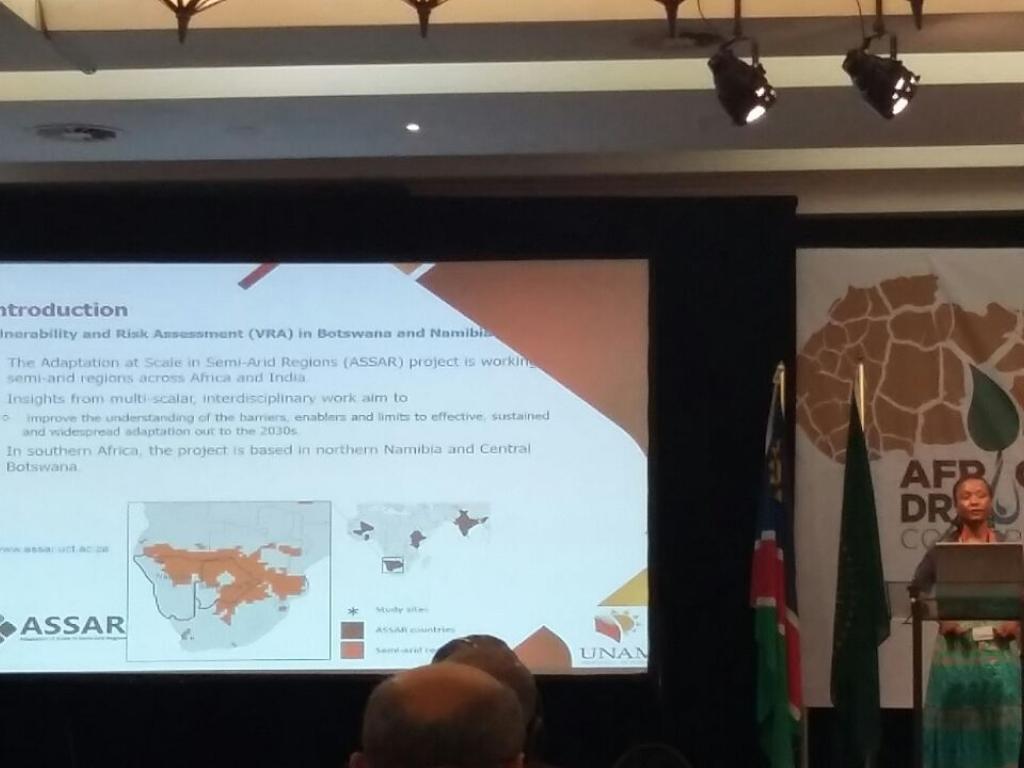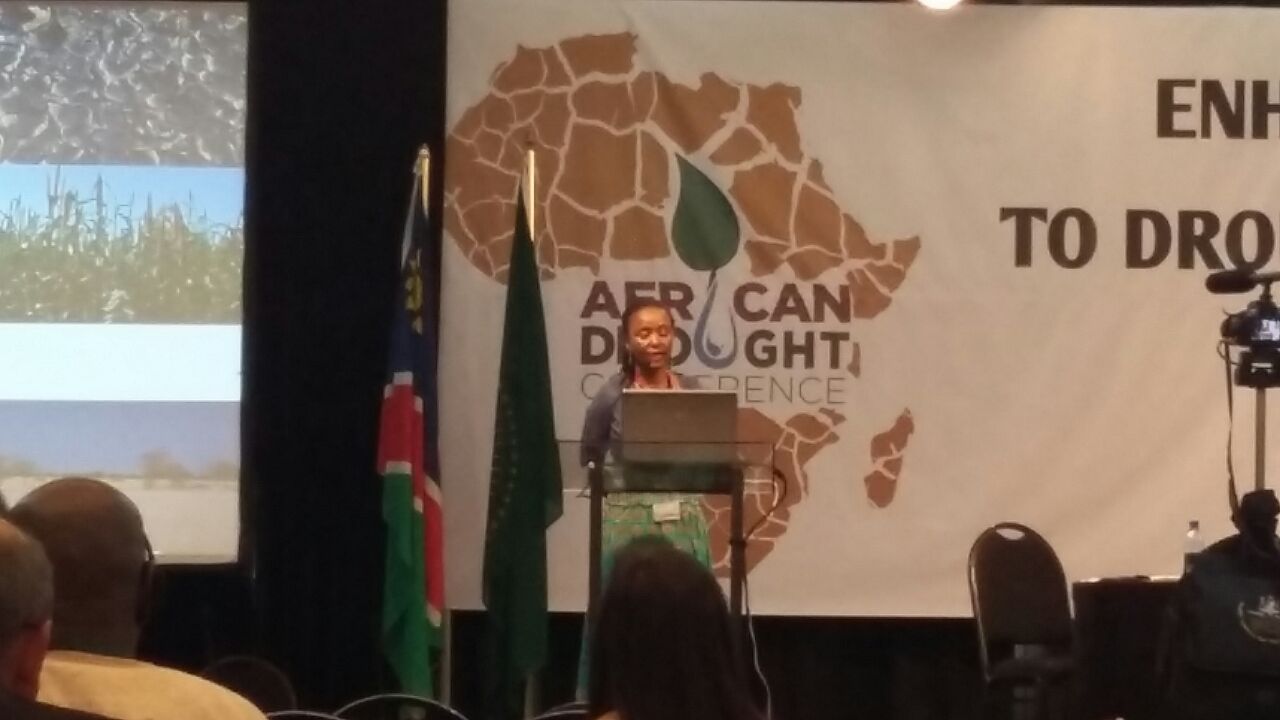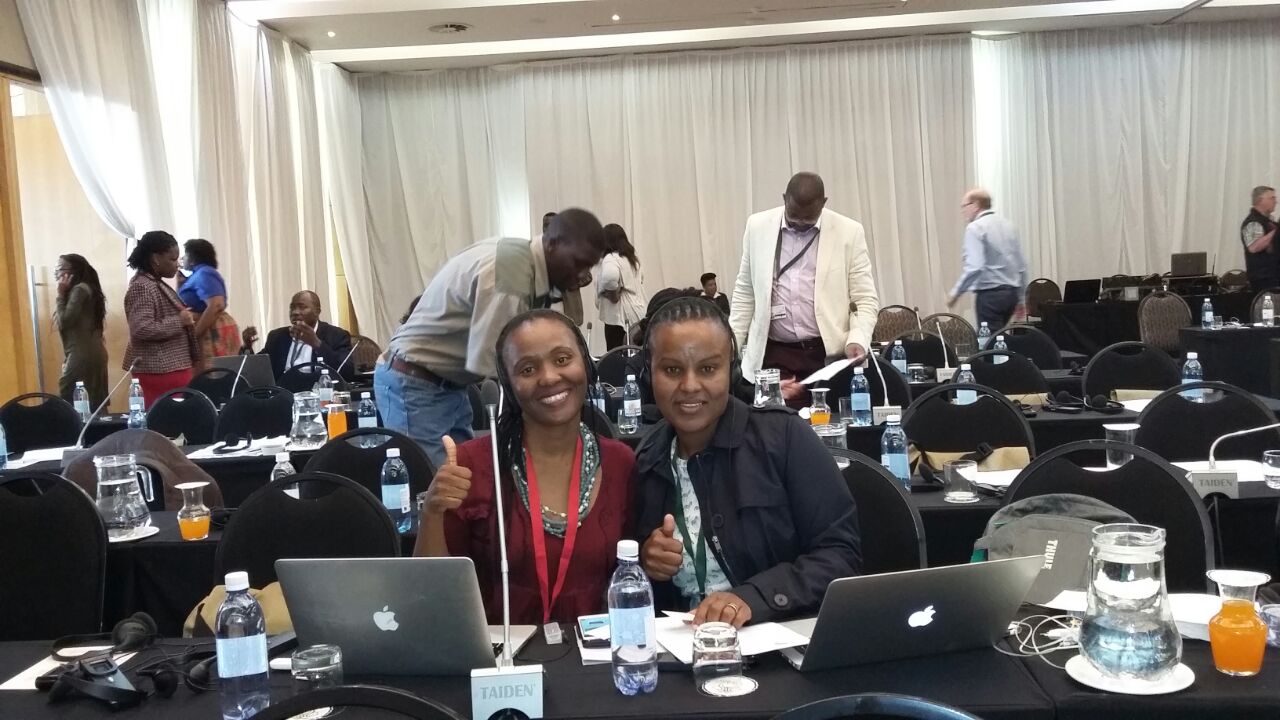ASSAR at the African Drought Conference

By Bernadette Shalumbu, Margaret Angula and Tali Hoffman, with input from Kulthoum Omari and Irene Kunamwene

Margaret Angula delivering a presentation during the conference plenary session
Drought in Africa
Africa is particularly vulnerable to drought, and yet many African countries lack or have inadequate drought-preparedness and early-warning programmes. As a result, throughout the continent droughts cause hunger, thirst, migration of people and animals, diseases, deaths and many other societal problems.
Droughts and their impacts are set to become more frequent with climate change. Already the ongoing 2015/16 El Niño has been recognised as one of the most severe in recent decades and, consequently, extreme drought and acute water shortages are expected across Southern Africa and the Horn of Africa in 2016.
The African Drought Conference
In Windhoek, Namibia from the 15th-19th August 2016, the secretariat of the United Nations Convention to Combat Desertification (UNCCD) and the Republic of Namibia hosted the African Drought Conference (ADC). The main aim of the ADC was to devise and discuss an overarching drought-risk management framework that could make countries more prepared and resilient to droughts, and help to improve the lives and wellbeing of rural communities and farmers. The ADC delegates also agreed to establish a continent-wide network of national institutions to monitor droughts and early warning systems, and to capitalise on existing country mechanisms for enhanced drought resilience. Follow-up conferences will monitor the progress of these actions. The full Windhoek Declaration for Enhancing Drought in Africa can be read here.
ASSAR's involvement at the ADC
ASSAR participated actively in the ADC. Team member Margaret Angula, from the University of Namibia, gave a presentation during the main plenary session (“Vulnerability and Risk Assessment in Botswana and Namibia to understand risk and hazards in rural communities across scales”); information from this research helped to ensure that social differentiation and governance issues were drafted into the Strategic Framework for Drought Risk Management and Enhancing Resilience in Africa. Gina Ziervogel (ASSAR Southern African Team Researcher), Lucia Scodannbio (ASSAR Project Coordinator) and Daniel Morchain (ASSAR Co-Principal Investigar) gave valuable support to Margaret in developing the information that was submitted to the ADC delegation. In the coming weeks ASSAR may also be asked to proofread and provide comments on the national drought strategy framework (called DRAPA: Drought Resilience and Prepared Africa).

Irene Kunamwene, ASSAR PhD student from the University of Cape Town, delivered a presentation at an ADC side event
Irene Kunamwene from the University of Cape Town gave a presentation (“Comparison of wellbeing and vulnerability approaches for informing adaptation decisions: case study of drought in Onesi Constituency, Omusati Region, Namibia”) during an ADC side event focused on experiences in preparing for and managing drought at the local level.
Margaret, along with another ASSAR team member – Kulthoum Omari from the University of Cape Town – also gave meaningful contributions to the plenary discussions and promoted the value of Vulnerability and Risk Assessments in bringing together stakeholders from different scales.

Margaret Angula from the University of Namibia (left) and Kulthoum Omari from the University of Cape Town (right) flying the flag for ASSAR at the ADC
Based in the University of Namibia’s exhibition booth ASSAR also exhibited and distributed material including student posters, project brochures and an information brief (“How can we better understand and manage the impacts of droughts?”) that drew on ASSAR’s drought-relevant work.
Finally, as the Governor of the Omusati Region, as well as four Regional Councillors attended the ADC, the Omusati Regional Council planned a drought workshop on the 16th of September 2016. ASSAR has been invited to give a presentation at this workshop about the ADC outcomes, and to discuss what these mean for the Omusati Region.
|
ASSAR stories that featured in the media as a result of the ADC The ADC helped to raise the profile of ASSAR’s work, as is evident by the numerous media mentions the project received during the conference. These included mentions in the following news outlets: The New Era Newspaper, Republikein, and The Namibian. During the ADC Margaret Angula was also interviewed by the Namibian National Broadcasting Afrikaans Radio Station, and asked to reflect on the ADC and to describe her work on drought risks and vulnerability. |